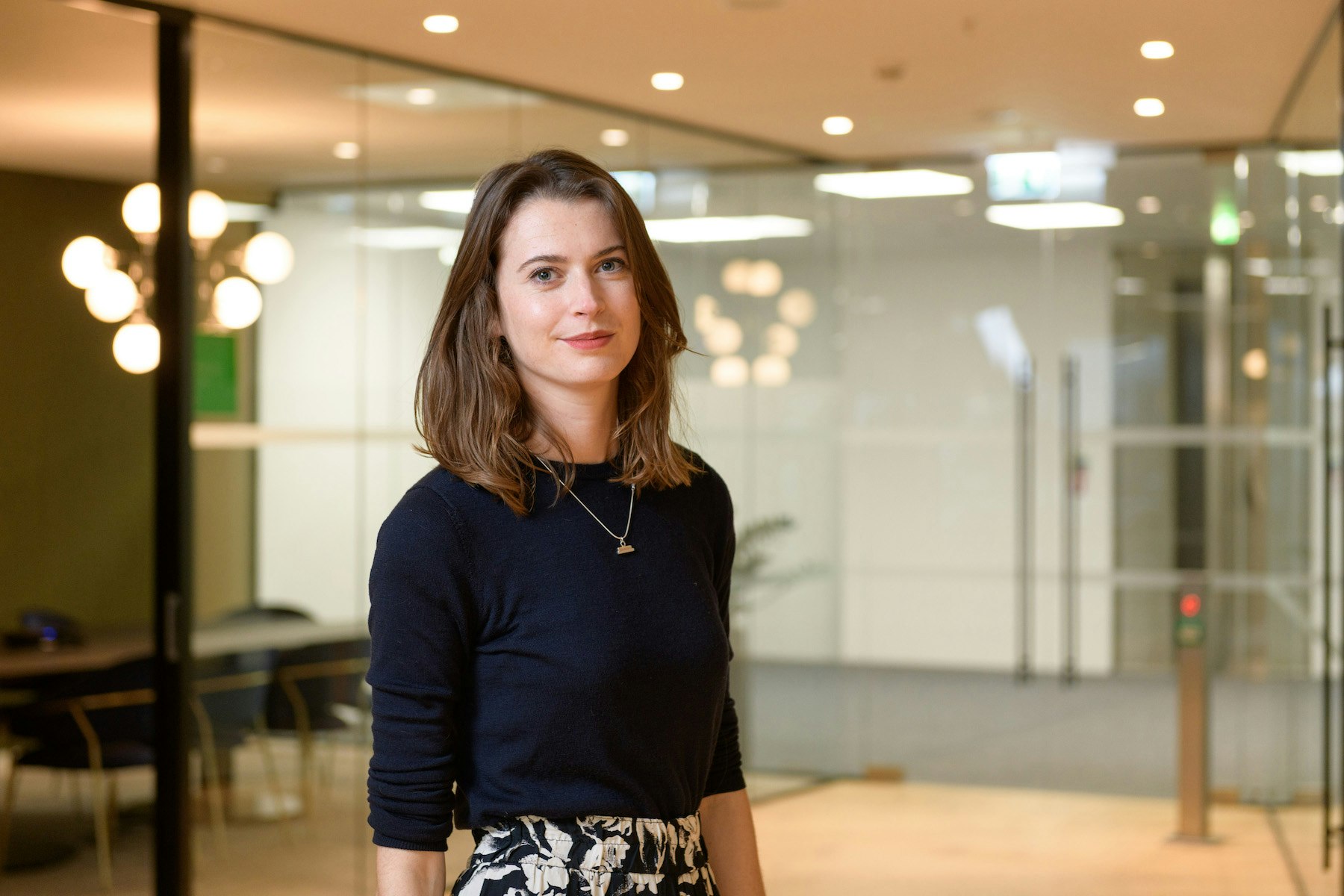Mentimeter is a household name in corporate Sweden. The SaaS startup has developed an audience engagement platform which allows viewers to interact with a presenter’s slides in real time.
Born as a hobby project in 2012, the company today employs more than 240 people — and it's never raised capital from VCs.
Here’s how the first-time founders did it.
1. Raise just enough for the founders to hire the core team
In 2014 the startup scene in Stockholm was about to take off and venture capital became a good way to kickstart your company. The first-time founders of Mentimeter didn’t have any savings — so, it was a no-brainer to try and raise some money.
Cofounder Johnny Warström reached out to his network and through those recommendations, Mentimeter was soon in touch with a lot of investors.
“Stockholm is a small place and if you start talking to one or two people — in the end, you can get recommended to 100 or so investors,” Warström says.
Some months later four angel investors invested 3m-4mSEK (~€500k) which enabled two out of the four cofounders, Niklas Ingvar and Warström, to come on full-time and hire the first five people.
At that point, Mentimeter was already making money, although only €2,000 per month.
The team of seven people (two marketeers and five developers) remained that size until 2017 when the company’s revenue tripled to €1.7m and the business went from break-even to a €280k profit. That made it possible for the founders to hire more people.
“By not raising more money, there was a constant tug and pull about the things we ought to focus on,” Warström says. “Reinvesting the profits in the business is pretty low-risk.”
2. Give up (a lot of) control to the board
Ingvar and Warström together own 56% of the company; the rest is divided between the two non-operational cofounders, employees and three angel investors.
The founders' combined shares mean that they have full control of the company. However, they decided that only one of the cofounders (Ingvar) should take a seat on the board, with the other seats made up of a mix of angel investors and tech professionals. Three out of six board seats are held by women.
“Having a professional independent board gives a higher layer of professionalism to the work. From the start, the board could have just been me and Niklas (given the voting power) but having a formal forum to report to heighten the accountability of everyone in the organisation, including me and Niklas,” Warström says.
3. Don’t raise too much too quickly
“At times we wanted to raise capital but, in hindsight, I am happy about the path we have chosen for the company,” Warström says. “A good thing about raising capital is that you can take more risk — [but] in some cases that can be a bad thing. If Mentimeter had raised €10m in 2014, I think that would have resulted in us doing the wrong things.”
Warström believes that since the problem Mentimeter was trying to solve within audience engagement was very narrow, having too much money early on would probably have tempted them to try lots of new things and lose focus.
On the flip side, VC-backed companies often have the luxury to plan three years ahead, thanks to having money in the bank, says Warström. For bootstrapped startups that rely on revenue to be able to make investments in the business, plans are often made within just a three-month timeline. That can hinder a company’s ability to make decisions about larger investments in the business.
“That [long-term planning] is something that Mentimeter has lacked at times.”
4. Pick your shareholders
Mentimeter hasn’t raised any money since its first angel round, but it is still involved in discussions with investors. Sometimes employees and the few angel investors it does have want to sell some of their shares in the company, so Warström meets with investors as potential buyers.
“When one of our employers or angels has wanted to sell their shares, I have had to ask myself, ‘Who do I want as shareholders if I can choose?’ I don’t pitch to raise money but to get the shareholders I want,” Warströms says.
Mentimeter last held a secondary sale in December 2018 when one of the cofounders wanted to sell some shares and the investment company Alfvén & Didrikson stepped up to acquire them. It now owns 9% of the company.
I don’t pitch to raise money but to get the shareholders I want
If Mentimeter did want to raise more external capital, Warström doesn't think it would be a great fit for VC.
“For private equity investors, we are still seen as too high risk and for venture capital investors, we are too low risk,” he says. “In that way, we are more of a mature company moving towards the more traditional financing options.
“Eight years ago, I had no network in venture capital. Now, I have no network in private equity. That has been a journey for me as a CEO as well.”
5. Focus on what makes you money
Today, 10 years after putting the first product together, Mentimeter is a profitable company and made more than €20m in annual revenue in 2021, a 76% increase from the previous year.
Enterprise sales have been key to that growth. In 2018, the team invested most of its savings in building out its enterprise sales team and has since gained 11 large customers, each paying the startup $100k annually.
In terms of employees, Mentimeter has grown 100% year-on-year since 2017; however, it’s taken a lot longer to do what some VC-backed startups can do in a year.
The US quickly became the biggest market for Mentimeter. But while a VC-backed startup probably would quickly set up an affiliate there, Mentimeter waited.
Warström says: “We noticed pretty early on that the US market was taking off but to lessen the risk we waited to set up the office. We did so in Canada only last year when we already had 180 employees. Building our company without a large investment hasn’t meant that we haven’t done what a VC-backed startup would do, it has just taken us a bit longer.”
6. Focus on the core business instead of fundraising
Mentimeter treats its employees (and their families) to an “away month” once per year — often somewhere slightly warmer than Sweden. It was also selected as the hottest SaaS company in Sweden by Breakit in 2021 and one of the fastest-growing companies in Sweden by business daily DI.
By not having to fundraise, Warström has been able to spend his time working on the business instead.
“I guess since I haven’t had to focus on fundraising, I’ve been able to focus on other things internally in the company. We are also a very value-driven company and I have had the time to think about how we do things and not just what we are doing,” Warström says.


